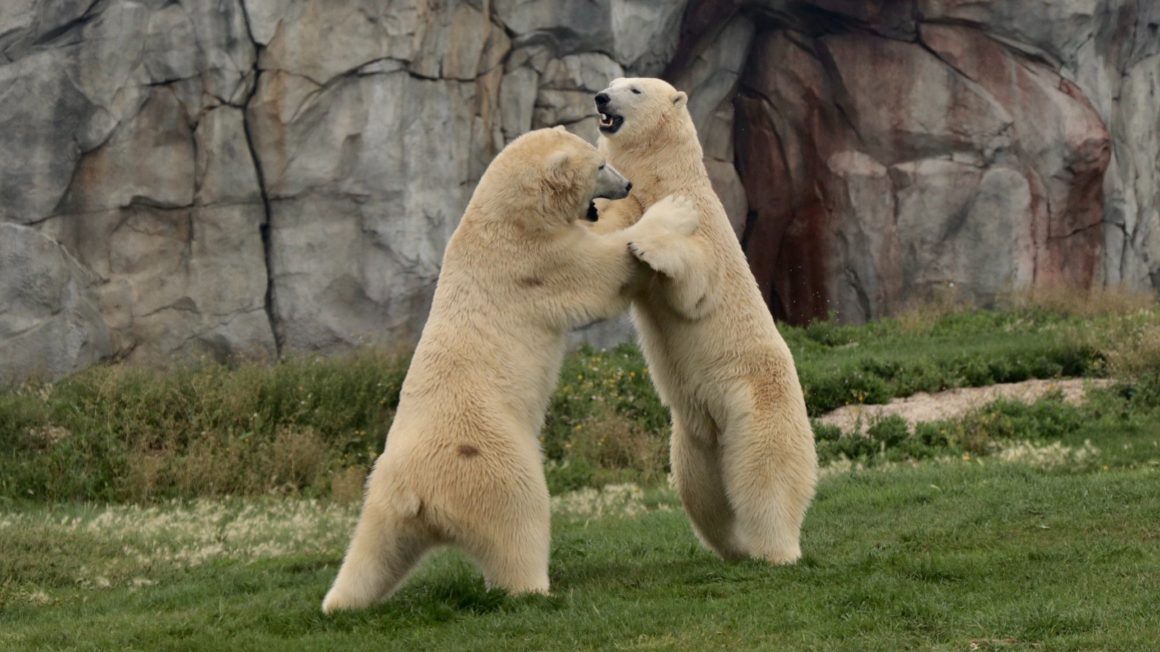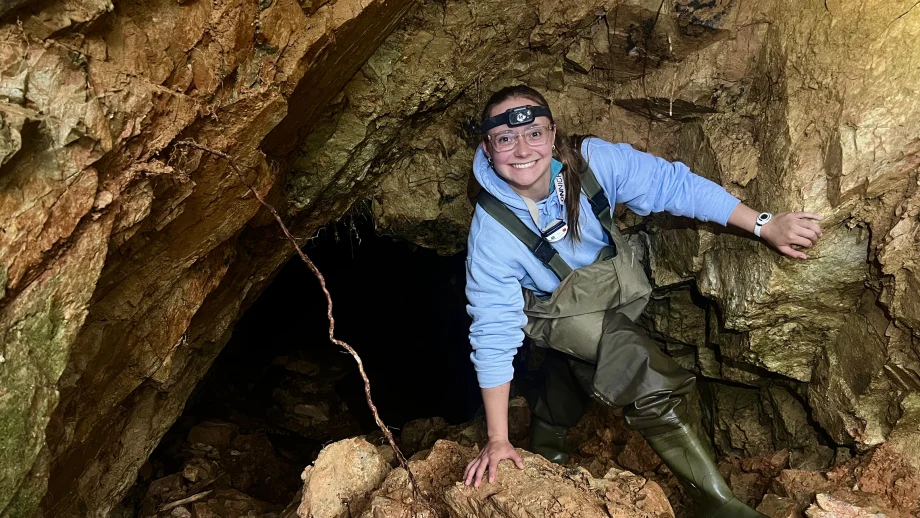Do polar bears have personalities? And if they do, how can we assess them?
That’s what University of Winnipeg psychology and biology student Kerianne Chant has been researching the last two years with the Assiniboine Park Zoo.
Examining these individual differences enables animal caretakers to not only better understand the bears, but better predict the behaviour of the animals.
Kerianne Chant
“Individual behavioural differences in animals or personalities are now widely recognized within biology as an important aspect to investigate when trying to understand animal behaviour,” said Chant. “Our study assessed personalities in nine polar bears (Ursus maritimus) housed at the Assiniboine Park Zoo using a five-factor personality assessment.”
Last year, Chant was the President of the Wildlife Society at UWinnipeg and, through her extensive involvement, received many volunteer opportunities.
After going for a tour of Assiniboine Park Zoo and the conservatory, she met Dr. Stephen Petersen, Director of Conservation and Research, as well as Adjunct Faculty in the Department of Biology, and he told her about the project they wanted to do.
“The conservation team at the Zoo noticed some pretty big individual differences between the bears that came into their care, in terms of management and social groups,” she said. “Some of the social groupings seemed to work better for others and staff wanted to know if there’s a way of assessing better care for the bears.”
Petersen says Chant’s expertise in psychology and animal behaviour has been a welcome addition to the team and that he’s enjoyed collaborating with her to better understand the polar bears they care for.
“The Zoo is always striving to make sure we provide the animals here with the highest level of care and to do that we are often looking for new ways to understand these animals and what we can do to ensure their well being,” said Petersen. “Testing the validity of using personality assessments to score animals is a very novel technique, but could provide us with more tools to keep bears happy and healthy. We are hoping to build on the work that Kerianne did and expand it to assessments of other bears in other facilities.”
The Department of Conservation and Research at Assiniboine Park Zoo has mentored several outstanding honours students from UWinnipeg over the years, and Petersen says they’re grateful to add Chant to that list.
“A defining trait of The University of Winnipeg is reflected each day in the research undertaken by students like Kerianne Chant,” said Dr. Jino Distasio, Vice-President of Research and Innovation, UWinnipeg. “This project highlights just how actively engaged our students are in undertaking work in the community that has impact and contributes to the skills needed for careers.”
Polar bear personalities
“I want to see whether the big five personality factors — extraversion, agreeableness, openness, conscientiousness, and neuroticism — apply in assessing polar bear personalities.”
While polar bears are solitary for much of the year, Chant says some groups of bears, like males, are more social during the summer and fall within the western Hudson Bay population and along the Manitoba coast.
Since there appears to be a sociality in wild bears, the question is: how does this impact bears in human care, especially with individual differences in their behaviour with other bears.
Chant’s thesis project, which she successfully defended this past April, used data gathered over the course of three years (2018-2020) and included nine polar bears, aged two to eight, housed at the Journey to Churchill exhibit.
“Animal care professionals at the Assiniboine Park Zoo rated each bear once a year using a modified five-factor personality questionnaire,” she explained. “Each bear was rated on a seven-point scale: one being an accurate statement and seven being a very inaccurate statement.”
The takeaway from three years of data was that the assigned scores were highly repeatable from year-to-year and observers were extremely consistent in their evaluation of the bears. This suggests that the personality test we used is accurate and something that we can build on.
Providing the best care
This research and the results will directly help the management of the polar bears at the Zoo.
“Examining these individual differences enables animal caretakers to not only better understand the bears, but better predict the behaviour of the animals,” Chant said. “If a polar bear is low in agreeableness, they may prefer to be housed with few other bears. However, there may be some polar bears who have high agreeableness and like being with other bears and engaging in social play.”
Chant says this research has continued into 2021 and will continue into the future too. She recently presented it at the 2021 Canadian Society for Ecology and Evolution Conference and UWinnipeg’s 16th annual Randy Kobes Undergraduate Poster Symposium, where she finished first in the biological and environmental sciences category.
This research will not only help animals in zoos, but also can be used on wild animals. By having a reliable and repeatable method for assessing animal personalities, it may help experts proactively manage animal problems and minimize human-wildlife conflicts.






